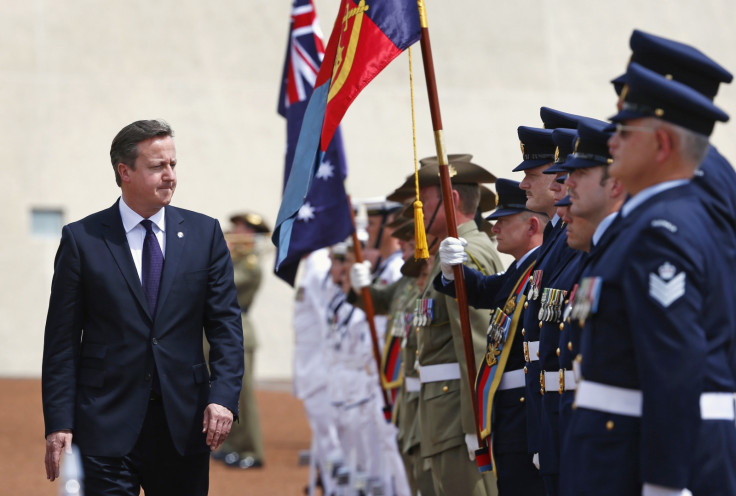David Cameron to Introduce Tough Measures to Combat British Isis Jihadists

Prime Minister David Cameron is set to unleash new measures to combat British Islamic State (Isis) jihadists travelling to conflict zones.
The proposed law will, among other things, impose a two-year ban on suspected jihadists returning to the UK.
Pledging to fast-track the process, Cameron hinted that the new measures, which will form the nucleus of the planned anti-terrorism bill, will be introduced in parliament by the end of November.
Under the powers outlined by the prime minister who is now in Australia for the G20 summit, the terror suspects would be allowed to re-enter the UK only if they comply with investigation, face trial, and agree to home detention.
The bill would also penalise airlines which do not adhere to the UK's no-fly lists and security arrangements.
If the new powers come into force, they would allow a police or a border officer to confiscate a passport for 30 days if there is "reasonable suspicion" that the person is travelling abroad specifically to indulge in terrorist activities.
"We must confront this extremism in all its forms. We must ban extremist preachers from our countries. We must root out extremism from our schools, universities and prisons," Cameron said in a speech to the Australian parliament in Canberra.
The proposed tough measures, which have the concurrence of the Lib Dems, follow a series of discussions at Whitehall in view of the legal ramifications.
One possibility is the British government being accused of leaving its citizens stateless. Analysts have questioned the legitimacy of the counter-terrorism measures while the Labour party has called for more actions to stop radicalisation of Britons.
When questioned whether it would render British militants stranded in countries like Turkey stateless, the prime minister said: "We need additional powers as well as simply the criminal law."
"We believe we need an additional set of powers in order to keep the country safe over and above what the criminal law allows, and I think it is very sensible that we do that."
"At the end of the day, I make the choices based on what I think is necessary to keep the British public safe, and I think this new power is important in this regard."
Cameron pledged to introduce the new anti-terror laws in September shortly after the execution of American journalist James Foley.
© Copyright IBTimes 2024. All rights reserved.







